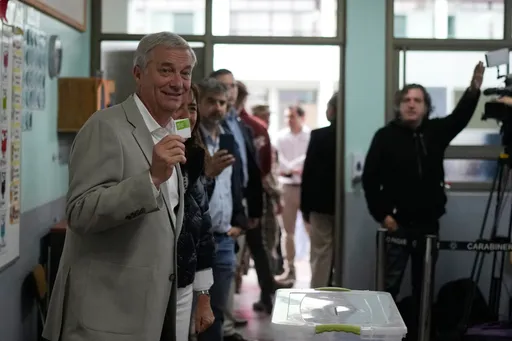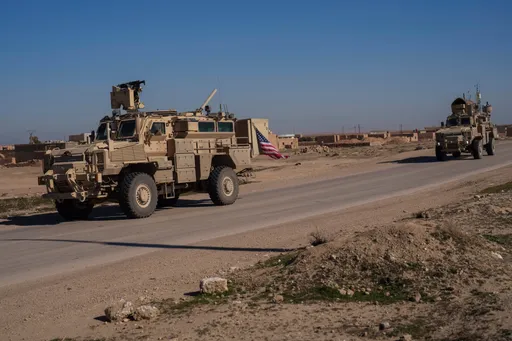Libya has demanded "immediate" withdrawal of all foreign mercenaries at a meeting with European foreign ministers in Tripoli, who came in a show of support for the war-torn country's newly formed unity government.
"We demand that all mercenaries leave the Libyan lands immediately," said Minister of Foreign Affairs Najla al Mangoush to his foreign counterparts on Thursday.
Al Mangoush made the demand at a meeting with France, Germany and Italy's foreign ministers, where she expressed the need to rebuild confidence in the country's new economic movement at the governmental and private levels.
An estimated 20,000 mercenaries and foreign fighters are still in the country, whose presence the interim Prime Minister Abdul Hamid Dbeibah has called "a stab in our back."
She also expressed the need to accelerate the return of the activities of embassies and facilitate the procedure of visas from Libya.
READ MORE:Is Libya moving from conflict to reconciliation?
Support for new government
The visit by French Foreign Minister Jean-Yves Le Drian, Germany's Heiko Maas and Italy's Luigi Di Maio comes 10 days after the formation of an interim government to lead Libya to December 24 elections.
In a statement ahead of the meeting, Maas hailed the agreement to establish a unity government in Libya but warned that much more needed to be done.
"We are determined to stand by the government of national unity," said Mass. "We started reaping the fruits of the Berlin Conference and the efforts of the Libyans in coordination."
"Developments in Libya are one of the few glimmers of hope in foreign affairs over the past year. Where there was war a year ago, the weapons have fallen silent," Maas said.
Thursday's visit comes after French President Emmanuel Macron said Paris will reopen its embassy in the Libyan capital next week.
Other countries including Egypt and Malta have also announced their intention to reopen embassies in Tripoli.
READ MORE: Libya's new interim government sworn in
Reopening of Libya
At Thursday's meeting, Le Drian said Libya's coastal road must be opened to allow the withdrawal of all foreign forces and mercenaries.
He also added that the Libyan elections must be held on the specified date at the end of this year
Di Maio expressed satisfaction with the reopening of Libyan oil exports and the adoption of the unity government's agenda for urgent matters for the Libyans.
"Our cooperation with Libya will continue to combat illegal immigration and human trafficking," said Di Maio.
READ MORE:Can Libya’s new unity government work towards ending the civil war?
Years of conflict
Libya descended into chaos after longtime ruler Moammar Gaddafi, was toppled and killed in a 2011 NATO-backed uprising, resulting in multiple forces vying for power.
Fighting only came to a halt last summer, and a formal ceasefire in October was followed by the establishment of a new Government of National Unity led by Dbeibah.
Dbeibah was sworn in last week after parliament approved his cabinet in a move hailed by key leaders and foreign powers as "historic."
The new transitional executive emerged from a complex UN-sponsored process launched in November, and its members were confirmed by Libya's parliament on March 10.
READ MORE: Haftar militia commander wanted by ICC shot dead in Libya
Libyan crisis
The country had been divided between two rival administrations: the UN-recognised Government of National Accord (GNA) based in Tripoli, and its rival in the east loyal to warlord Khalifa Haftar.
The eastern administration officially handed over power to the new executive on Tuesday, a week after Fayez al Sarraj, the outgoing head of the GNA, formally ceded to the new unity government.
GNA was backed by Qatar and Turkey while Haftar received support from Egypt, Russia and the United Arab Emirates.
Haftar has not officially taken part in the political negotiations.
Libya's population of seven million, sitting atop Africa's largest proven crude oil reserves, faces a dire economic crisis with soaring unemployment, crippling inflation and endemic corruption.
READ MORE: UN report: Erik Prince plotted to violate Libya arms embargo
























